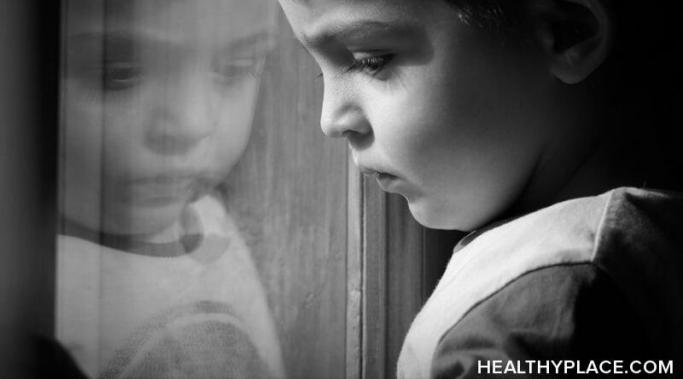About a month ago, I talked about getting my child evaluated for attention-deficit/hyperactivity disorder (ADHD). Technically, though, it wasn't a formal evaluation. It was basically a request (or plea, however you want to look at it) for my child's insurance company to foot the bill for ADHD testing. It was supposed to be the first step in getting the help we needed. Unfortunately, the insurance company decided it would also be the last step. They denied our request, even though the doctor thought ADHD testing was warranted. We're right back where we started.
Child Psychiatrists
When choosing a topic to write about for "Life with Bob," I usually like to try to pick just the right one, maybe even do some research to see what my readers are asking about on Google. This week, though, I can only think about one thing: my child with attention-deficit/hyperactivity disorder (ADHD) won't listen to me.
Keeping a child mentally healthy can be challenging, especially if your child has a mental illness as mine does. In fact, I think it can be harder than keeping a child physically healthy since keeping the body in shape basically involves a checklist: good diet, check; lots of exercise, check; plenty of water, check; annual checkup, check. A child's mental health, though, can be a bit more complicated.
My child is going through a formal evaluation for his attention-deficit/hyperactivity disorder (ADHD), which means I've answered approximately 506 questions regarding everything from how he acts in school to how I discipline him at home to which daily tasks he can accomplish by himself without being prompted. The doctor also took notes on how I interacted with my son, and by the end of the session, I felt like I had been evaluated as a mother as much as my child had been evaluated for ADHD. I felt insecure and judged.
In the middle of some of the hectic days I've had with my child and his attention-deficit/hyperactivity disorder (ADHD), I've often wondered: what causes mental illness in children, and what does that mean for me as a mother?
My son Bob began talk therapy at age eight after he knocked over a heavy wrought-iron barstool that ripped the back of my upholstered couch as it fell. Next he went upstairs and slammed the door to his room, putting a hole in the wall. Bob's behavior got worse despite my best parenting efforts. He was a sweet kid, but his moods changed rapidly, resulting in damage and destruction. I didn't know what to do, so I asked one of my mom friends for a referral.
My most recent post asked if a parent and child should see the same psychiatrist. The consensus was a resounding "NO." (Honestly, can't you people make anything easy?) Admittedly, upon giving the situation further thought, I'd rather preserve my flawless appearance with Bob's psychiatrist and let someone else be privy to my hot-messiness.
And so the search begins. (Sigh.)
I've been shopping for a new psychiatrist for my chronic severe depression and anxiety, and I think I've found a good one. Female, office nearby, personable, good reputation, and covered by my insurance.
There's just one possible snag--she's already seeing my son.
This time of year, I am always reminded of the first half of 2008--the year I admitted Bob to inpatient psychiatric treatment not once, but twice. I suppose it's because this is the same time of year, or because it's the season when Bob experiences more manic-type symptoms. Apparently, it's on Bob's mind, too.
Ongoing Problems Lead to a Second Inpatient Hospitalization
My recent posts have described my experiences with Bob and inpatient psychiatric treatment. I'm not sure why I'm revisiting that experience now, other than Bob's currently doing relatively well and I don't think I've previously detailed his hospitalizations here. Reading my own words, I'm amazed at how far we've come--and worried about the future.









